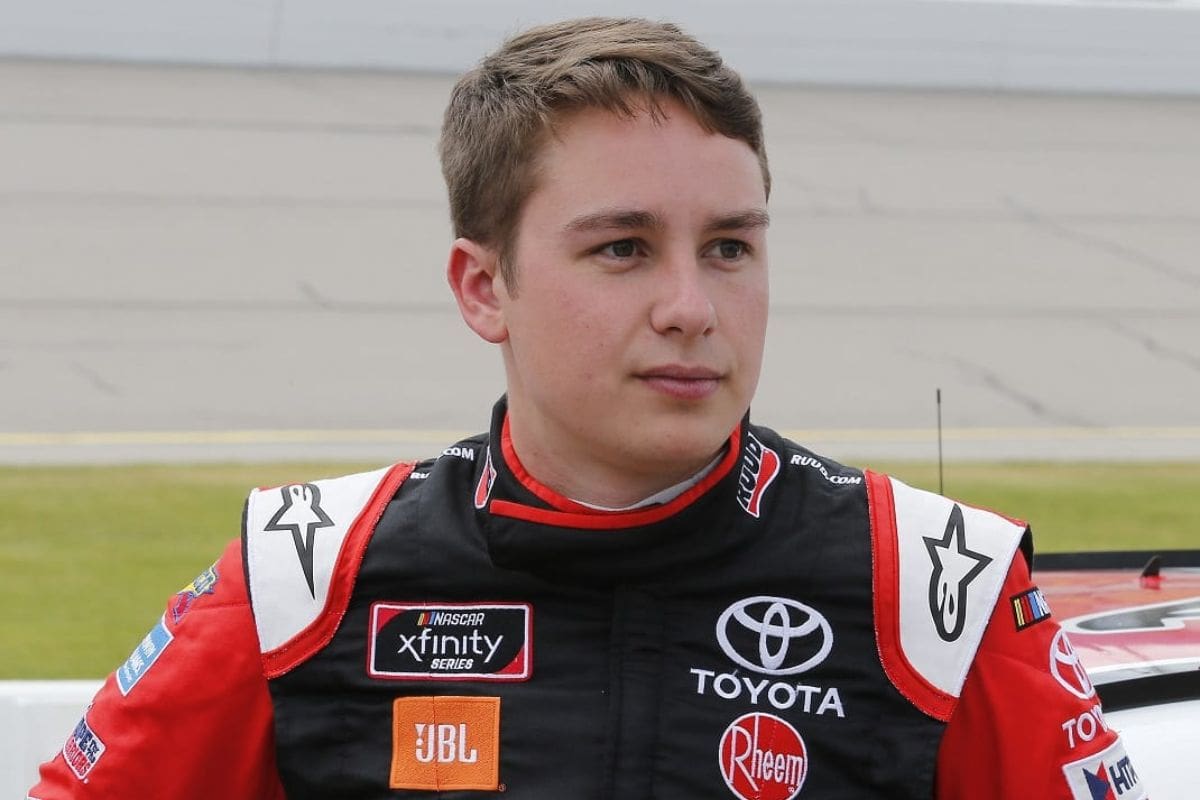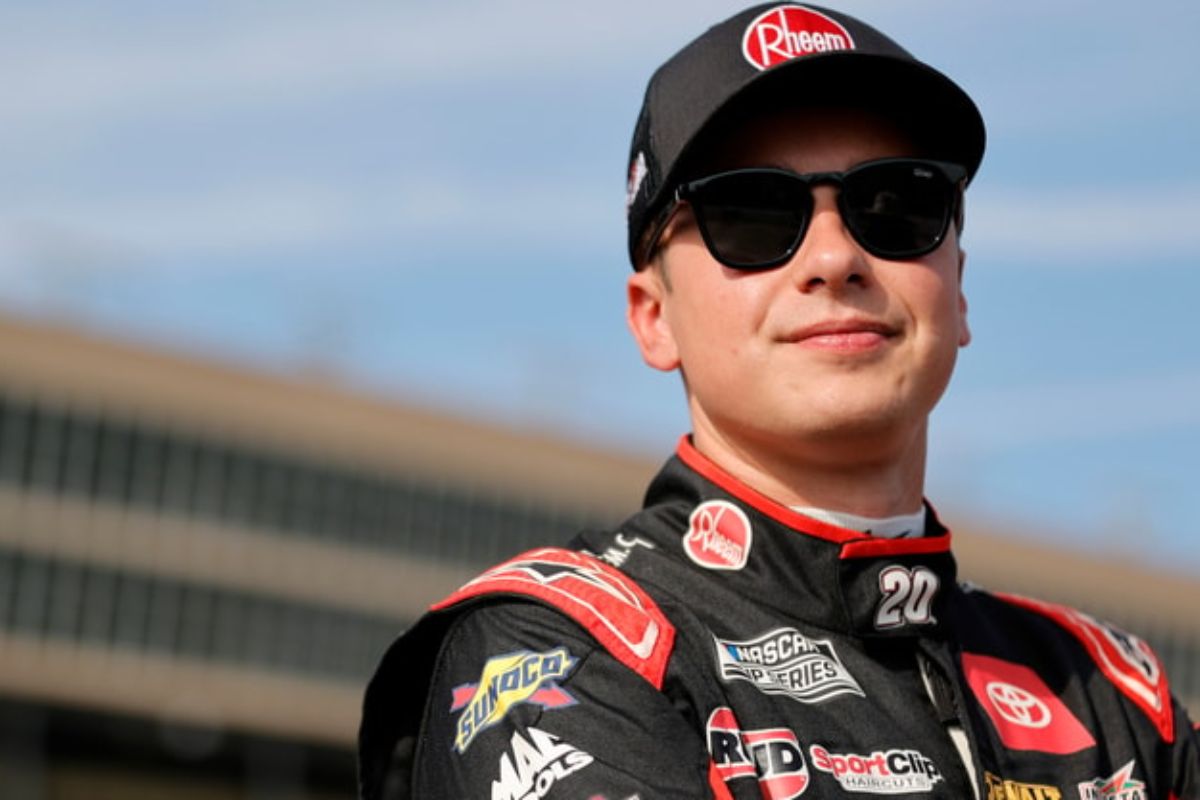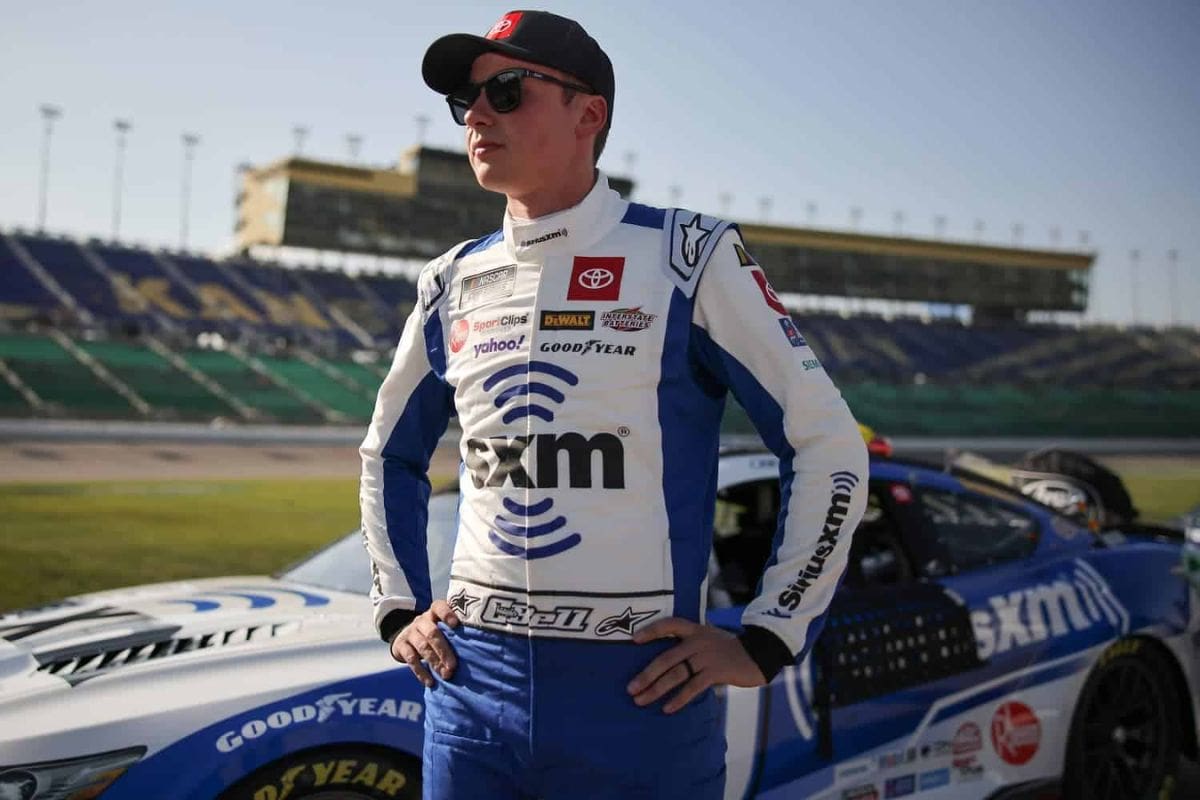Christopher Bell on Option Tires: Christopher Bell‘s ambivalence regarding the use of option tires in the Championship 4 highlights a crucial moment in NASCAR’s evolution. While he acknowledges the potential for improved late-race performance, his concerns about the implications for traditional racing principles raise fundamental questions about the sport’s direction. This tension between embracing modern strategies and preserving the integrity of competition reflects a broader identity crisis within NASCAR. As stakeholders grapple with these conflicting values, the implications for the future of racing could be profound, inviting a deeper examination of what defines the nature of the sport.
Key Highlights
- Christopher Bell expresses mixed feelings about option tires, indicating a struggle between embracing their benefits and concerns over racing integrity.
- He acknowledges the strategic advantages option tires provide, particularly in late-race scenarios for improving lap times.
- Bell’s comments reflect a broader debate within NASCAR regarding the balance between traditional racing values and modern tactics.
- The introduction of option tires has sparked controversy, especially concerning fairness and their impact on championship outcomes.
- Bell’s perspective highlights the ongoing identity crisis in NASCAR, as the sport navigates its essence amidst changing racing norms.
Christopher Bell on Option Tires
In the world of competitive racing, the tactical use of option tires has emerged as a significant factor influencing race outcomes, as noted by Christopher Bell. These specialized tires, characterized by their distinctive red lettering, offer a tactical advantage due to their softer compound, which provides improved grip and acceleration. This allows drivers to achieve rapid lap times, particularly when the race dynamics favor aggressive overtaking tactics and quick time gains.
Bell’s insights highlight a vital aspect of option tires: their ability to transform the fortunes of a struggling racer. In scenarios where a driver may have faced challenges throughout the race, opting for these tires can yield unexpected results, potentially catapulting them to victory. This unpredictability adds a layer of complexity to race strategy, compelling teams to weigh the trade-offs between short-term performance and long-term durability.
While option tires excel in generating speed, they are inherently less durable than their prime counterparts, which bear yellow lettering. This dichotomy forces teams to make essential decisions regarding tire selection, timing, and pit strategies during significant moments of the race.
The implications of Bell’s perspective extend beyond mere tire performance; they emphasize the evolving nature of race strategy in an increasingly competitive environment. As teams adapt to the subtleties of option tire deployment, mastering the art of timing and execution will be paramount in securing championship success.
Bell’s Comments on Option Tires
Christopher Bell recently weighed in on the controversial topic of option tires during an appearance on Dirty Mo Media’s Teardown podcast. His insights reflect a deep understanding of the tactical implications that option tires introduce in playoff scenarios, particularly during the critical Championship 4 race at Phoenix.
Bell articulated a complex perspective, acknowledging that while the use of option tires could provide opportunities for drivers who may not have performed well throughout the race, it raises fundamental questions about the essence of championship racing. He posed a thought-provoking dilemma: “No, What do we want the champion to be? Do we want the champion to be the best car, or do we want the champion to be the guy that sucked all race and saved a set of red tires that got the lucky yellow flag?”
“I’m very torn on it and we’re getting further and further away from traditional racing.” – Bell
His comments highlight the tension between traditional racing values and modern competitive approaches, illustrating a dichotomy that many drivers grapple with.
Option tires at Phoenix? CBell gives us his honest opinion. 💯 pic.twitter.com/K63HpYaUOm
— Dirty Mo Media (@DirtyMoMedia) September 6, 2024
Bell’s reflections reveal a driver torn between embracing innovation and preserving the integrity of the sport, making the discussion around option tires a crucial one in the future of NASCAR.
Option Tires’ Debut and Controversy
The debut of option tires in NASCAR during the points-paying race at Richmond Raceway marked a significant turning point, igniting a heated debate among drivers, teams, and fans in a similar fashion. This introduction aimed to improve competition and strategy; however, it quickly became a focal point for controversy. Austin Dillon’s victory, overshadowed by his aggressive tactics that sidelined notable competitors Joey Logano and Denny Hamlin, highlighted the potential for option tires to influence race dynamics in unexpected ways.
The option tires, designed to provide a performance advantage, also raised questions about fairness and the integrity of racing. Drivers like Christopher Bell express a divided sentiment regarding their implementation; while some appreciate the added tactical layer, others fear that such changes may detract from the core of the sport. The incident at Richmond demonstrated that the option tires could lead to aggressive strategies, potentially compromising the spirit of competition.
Furthermore, the controversy surrounding the race outcomes suggests a broader implication for NASCAR’s identity. As the series navigates the balance between thrilling entertainment and genuine racing, the introduction of option tires could either be seen as a groundbreaking advancement or a departure from traditional racing values.
NASCAR’s Identity Crisis
Amid ongoing debates about the impact of option tires, NASCAR finds itself grappling with an identity crisis that questions its foundational principles. The recent changes to the Cup Series schedule, including the incorporation of road courses and the controversial placement of Talladega Superspeedway in the Round of 8, reflect a broader struggle to define the sport’s essence.
These modifications have sparked varied reactions within the NASCAR community, highlighting a significant dilemma: should NASCAR prioritize pure racing or seek to captivate a wider audience for heightened revenue?
Christopher Bell’s observations during the NASCAR Playoff Media Day resonate deeply within this context. His frank acknowledgment of the sport’s identity crisis prompts critical reflection on its path. Are the governing bodies committed to showcasing elite racing talent, or are they veering toward an entertainment-centric model that risks diluting the sport’s competitive integrity?
“It just feels like we are in a little bit of an identity crisis, and I can’t, I didn’t… someone else in our industry use that term and I loved it, and I’m like ‘That is so true.’” – bell

“Are we a racing league and do we want to promote the best teams, the best drivers? Or do we want to be in the entertainment industry and have the most entertaining races?” – Bell
The removal of Watkins Glen from the playoffs, alongside other alterations, raises pertinent questions about NASCAR’s commitment to its traditional roots versus its ambition to adapt to contemporary entertainment standards.
This existential quandary places NASCAR at a crossroads, forcing stakeholders to confront the implications of their choices. By prioritizing spectacle over authenticity, there is a danger of alienating the very fanbase that has sustained the sport for decades.
As NASCAR continues to navigate this tumultuous landscape, the challenge remains: to balance the allure of entertainment with the core values of racing excellence, ensuring that the sport retains its identity amid inevitable change.
News in Brief: Christopher Bell on Option Tires
The debate surrounding option tires in NASCAR, as highlighted by Christopher Bell’s conflicted stance, emphasizes a crucial moment in the sport’s evolution. While these tires introduce tactical dynamics that can improve competition, they also challenge the traditional values that have long defined racing integrity. This tension reflects a broader identity crisis within NASCAR, as stakeholders navigate the balance between innovation and the preservation of competitive authenticity, ultimately shaping the future landscape of the sport.
ALSO READ: Christopher Bell Aims for Championship 4: Can Playoff Points Propel the No. 20 Team?



